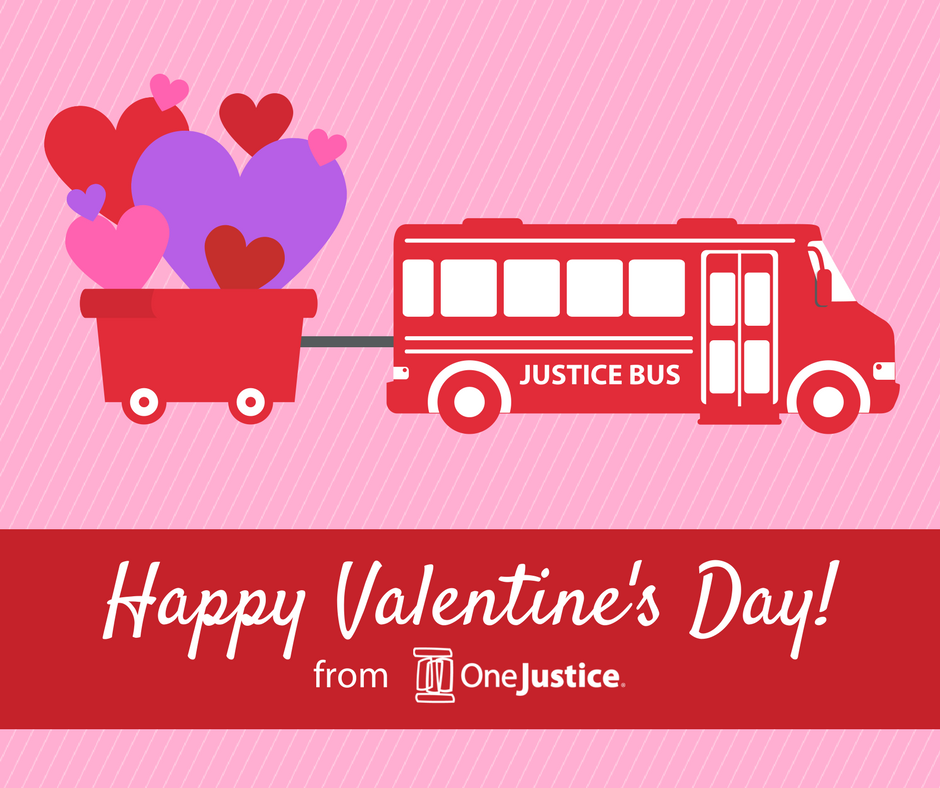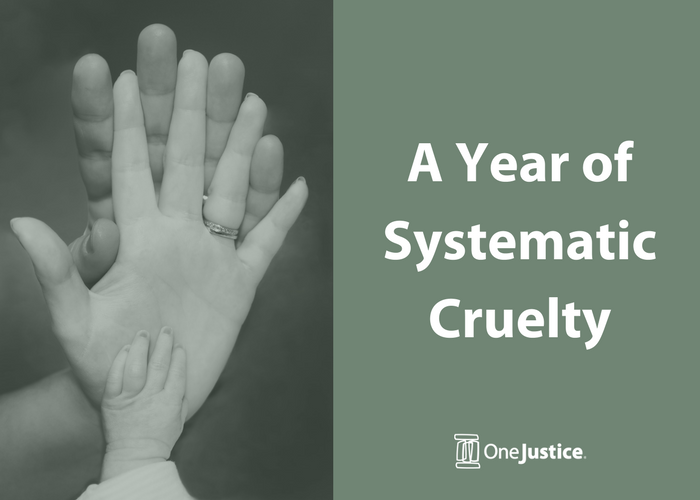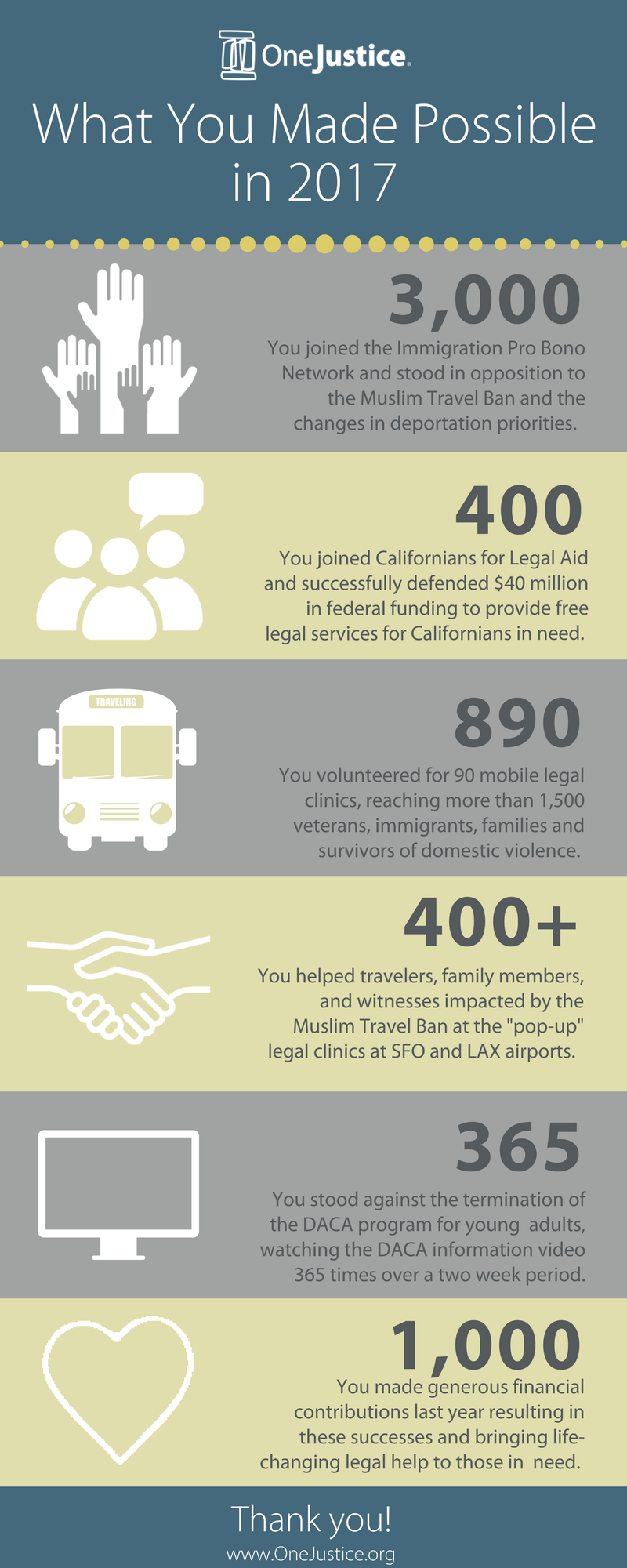
January 17, 2018
The answer: an amazing new group of social justice advocates here at OneJustice!
OneJustice is starting off 2018 with a staff of 27 people – the largest we’ve ever been! Our newest team members all come to us with amazing skill sets and serve in vital roles for OneJustice. And what’s more – they’re all amazing people. As we do with all our new staff members, we asked them to answer these four questions:
- What drew you to OneJustice’s vision, mission, and strategies?
- Tell us a bit about your position at OneJustice and what you hope to achieve?
- What was your path in coming to OneJustice?
- And please tell us something about yourself that not everyone might know.
We think you’ll enjoy hearing their responses below. And we know that you’ll enjoy working with them as they get up and running in their work! Join us in welcoming Blossom Cole, Lusik Gasparyan, Roel Mangiliman, and Patrick Kelleher-Calnan.
Blossom Cole – Executive & Grants Coordinator
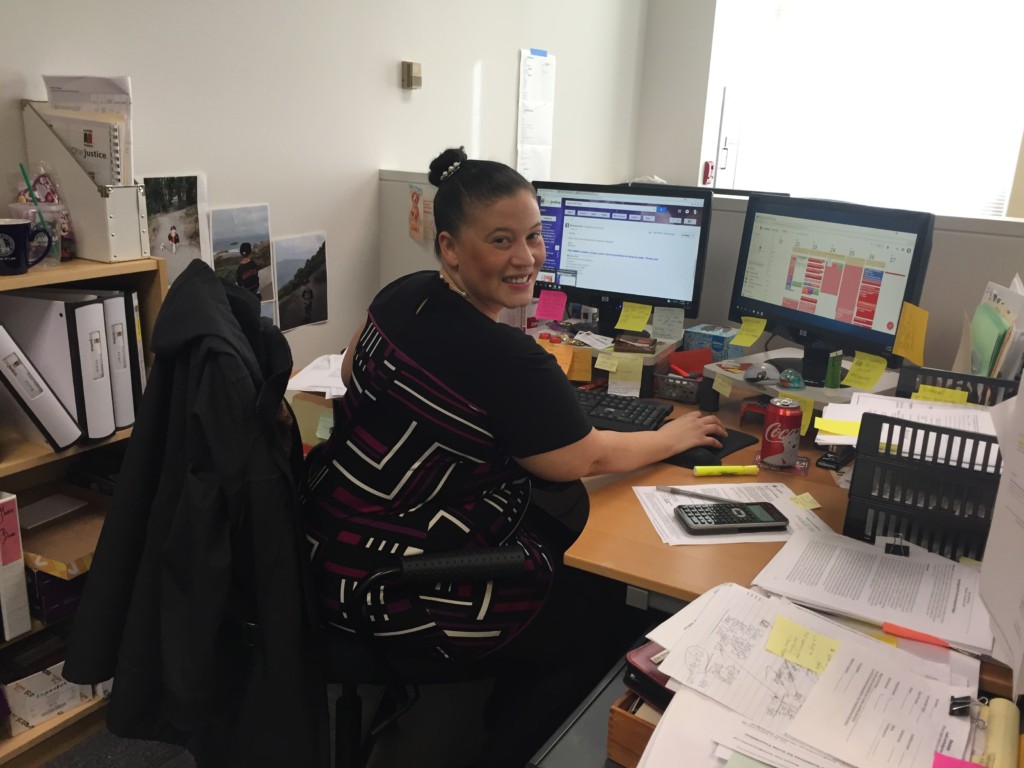
Since I grew up in California in a low-income community, many of my experiences were extremely traumatic, and were systematically shaped by politics and divisive agendas. Much like today, our government during the Reagan administration in the 80s, pushed racist policies. Social services were defunded throughout the country, and particularly in California, where mental hospitals were closed. The patients undergoing treatment got released to their own devices. My mother was one of those people, suffering from schizophrenia, and had been involuntarily committed, yet they let her out anyway.
OneJustice’s program participants are now facing their own trauma at the hands of our government, which I can identify with personally. My people are losing government benefits, facing legal problems, fighting to stay in the only country they know, and they need help now.
As the Executive and Grants Coordinator, I am responsible for managing the CEO’s schedule, and responding to internal and external requests for her time. I also assist Program Leads at OneJustice in completing grant reporting to our funders in a timely manner. I hope to completely overhaul our physical and digital grants filing system so that is it more accessible and easier to obtain the information required for reporting.
After earning my Bachelor’s degree in Political Science from San Francisco State University, I went on to earn my Paralegal Certificate with a focus on immigration. After an internship in family based immigration, I transitioned to a career in business immigration. Understanding and processing/drafting petitions for both prongs of immigration left me with a serious passion for immigration law. OneJustice gives me an opportunity to still be involved with immigration and allows me to go back to my social justice roots and offer an authentic perspective about what it means to be low-income in California and how support and access can change lives.
Analyzing our politics and governmental processes allows me to learn from my colleagues, who have a winning formula that reaches and communicates to those who are in the business of offering help to people who are disenfranchised. I get to have “a seat at the table” in order to shape OneJustice’s program reach and assist in obtaining funds to sustain our services, which help families and people like me. I give thanks to a great support system that helped me to succeed so that I could give back to my community. Touching one life is all I can ask for, and changing the perspective of one person can effect change, which will be my legacy.
I really love to sing, and I am a karaoke queen. I love learning new things and going to theme parks, especially with my family, which includes my four-year-old son.
Lusik Gasparyan – Project Manager, Pro Bono Justice
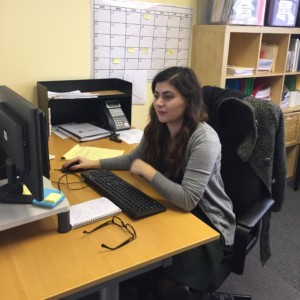 In my first year of law school, I realized that I wanted to work for an organization that is not only a problem solver, but is passionate about what they do and wants to improve the lives of those who face many obstacles in the legal system. OneJustice aims to increase everyone’s access to justice, regardless of income, citizenship status, or location of residency. OneJustice approaches the law from an innovative point of view, believing that everything can be improved and new ideas are always welcomed–a belief that I personally share myself.
In my first year of law school, I realized that I wanted to work for an organization that is not only a problem solver, but is passionate about what they do and wants to improve the lives of those who face many obstacles in the legal system. OneJustice aims to increase everyone’s access to justice, regardless of income, citizenship status, or location of residency. OneJustice approaches the law from an innovative point of view, believing that everything can be improved and new ideas are always welcomed–a belief that I personally share myself.
I am the Project Manager for the Rural Justice Collaborative clinic. The Clinic organizes immigration, criminal record expungement, and housing clinics for those living in the rural parts of the Bay Area, where the access to legal services is limited. Through my work, I hope to increase access to justice for those living in the rural parts and be able to update and advance our clinics based on the needs of the community. My aim is to expand the impact of Rural Justice Collaborative project.
I have a background in dependency, immigration, and family law. Prior to joining the OneJustice team, I was a law clerk at the Children’s Law Center of CA (CLC), where I interviewed minor clients in the dependency system about their living situation and explained to them the dependency court process. In addition, I helped my supervising attorney make recommendations regarding the minor’s care and housing. I also interned at Kids in Need of Defense, helping unaccompanied minors receive asylum or Special Immigrant Juvenile Status by interviewing them and working on their immigration court paperwork. While at the Harriett Buhai Center for Family Law and Pepperdine’s Restoration and Justice Clinic, I assisted survivors of domestic violence with their Family Law and Restraining Order paperwork and representation. In addition, at the Restoration and Justice clinic, I helped a survivor of human trafficking apply for a criminal record expungement so she could obtain a job. At the Coalition for the Advocacy of the Persecuted and the Enslaved, I assisted survivors of human trafficking with gaining legal status and worked with clients who were applying for U-Visa and renewal of DACA.
While in law school, I organized workshops that educated youth from transitional homes on their constitutional rights during police encounters. I created the materials that provided instructions on how to avoid self-incrimination and reduce the chances of being charged with obstruction of justice.
All of those experiences have prepared me for my current role by providing me with an understanding of the different legal issues people face. In addition, those experiences gave me an ability to empathize and connect with different clients and give value and validation to their stories. Those experiences have also made me want to improve the system.
I enjoy going grocery shopping and meal prep for the week. I love cooking and preparing a feast for my friends or family. I believe lemon juice, salt, pepper, and garlic are essentials for almost any savory dish.
Roel Mangiliman – Manager of Innovation and Learning
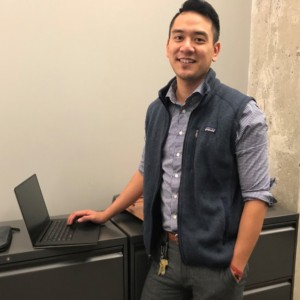
Everyone at OneJustice works on a constant everyday basis to answer the question, “In what ways can we increase access to justice for those who need it?” I decided to work here because not only do we answer the question, we take action.
As Manager of Innovation and Learning, I promote the theories and practices around topics of innovation, human-centered design, and organizational change as approaches to transform California’s civil legal aid system. Success in this work looks like growing acknowledgement among the legal community that “innovation” is not just brand speak, or referring to iPhones – but rather an organizational development process that resonates as urgent, actionable, and exciting to entities of all kinds looking to increase impact.
Prior to joining OneJustice, I spent five years studying organizational change initiatives in a range of charitable contexts including legal aid, academia, philanthropy, and mental health. At Seneca Family of Agencies, I led training initiatives and innovation efforts to meet the changing organizational needs of a mental health agency expanding rapidly across different states, service type, and compliance entities. At Bay Area Justice Funders Network, as a research fellow I studied philanthropic best practices for social change, and created training content for foundation staff looking to influence their foundations. Earlier, at the SF Superior Court Self-Help Center, I held a management fellowship where I studied the impacts of sudden budget cuts on staffing and service areas, ran strategic planning retreats, and consulted executives on staff and resource development. I completed my JD at UC Davis Law School, and received my BA in political science from UC San Diego. I am licensed to practice law in California, and regularly complete continuing education in nonprofit law, change leadership, and organizational development.
A hobby of mine is getting mall massages – those stations in the mall where people faceplant into a chair and get 45 mins of deep tissue massage (more like body work) at an affordable rate, with no talking. Paradise.
Patrick Kelleher-Calnan – Operations Manager
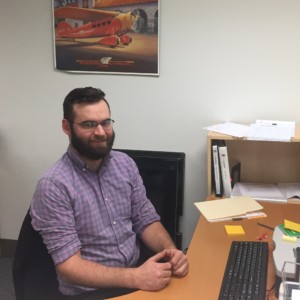 I was attracted to the mission of OneJustice because I believe lack of access to legal aid is a serious source of harm for many Californians, and I appreciate that OneJustice deals with the legal aid system as a whole. OneJustice appealed to me as an organization because it has a track record of success and displays a willingness to evolve as an organization.
I was attracted to the mission of OneJustice because I believe lack of access to legal aid is a serious source of harm for many Californians, and I appreciate that OneJustice deals with the legal aid system as a whole. OneJustice appealed to me as an organization because it has a track record of success and displays a willingness to evolve as an organization.
At OneJustice I am responsible for the day-to-day and long term operations of the offices, everything from bookkeeping to IT support. I’m excited to be joining such a high-caliber operation, and looking forward to finding ways to keep our processes effective and efficient as OneJustice continues to grow.
My professional background includes a diverse mix of operational and data-related roles. For five years I was the Admission Technical Specialist for graduate business programs at Northeastern University where I managed several admissions and marketing systems, performed a lot of data analysis and reporting, and making sure operations ran smoothly. Before that I ran the day-to-day operations of a growing bicycle tour, rental, and repair business. Since moving to San Francisco I’ve worked in an accounting office and as a Finance Administrator for a New Zealand based winery.
My work and volunteer experience also includes conducting geospatial research for a Human Right to Water campaign, wrangling data for the Eviction Defense Collaborative in San Francisco, and starting and running a neighborhood bicycle nonprofit in Boston.
I earned my BA from Wesleyan University and my MS in Urban and Regional Policy from Northeastern University.
Since moving to the Bay Area I’ve made it my mission to take advantage of every outdoor recreation opportunity in the area. So far my favorite has to be encountering elephant seals on the beaches of Point Reyes.


